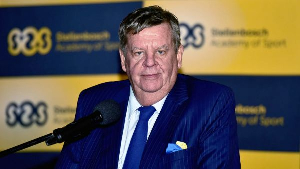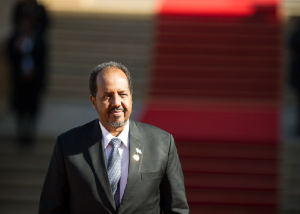... As Nuclear Agency Votes to Report Iran to U.N. Security Council for Treaty Violations
The International Atomic Energy Agency (IAEA) board of governors meeting on Saturday voted to adopt the EU's resolution that accuses Iran of failing to comply with its obligations to the Non-Proliferation Treaty (NPT) Safeguards Agreement.
The 35-member IAEA board voted with 22 for, 12 abstaining and 1against to approve the document.
The United States, Japan, Canada, Argentina, Ghana and the European Union (EU) countries nodded the resolution, while Russia, China and some Non-Aligned Movement (NAM) countries abstained from the voting.
Venezuela is the only member within the IAEA board that rejected the resolution.
Iran itself is a member to the IAEA, but it is not a member of the IAEA board, thus it has no right to vote.
The resolution said Iran has many breaches of its obligations to the NPT Safeguards Agreement, which "constitute non compliance"in the context of Article 12 of the IAEA Statute.
The resolution does not demand immediate referral of the Iran case to the UN Security Council.
However, according to Article 12 of the IAEA Statute, "the (IAEA) Board shall report the non-compliance to all members and to the Security Council and General Assembly of the United Nations."
The document also requests the IAEA Director General to report the implementation of this and previous resolution on Iran to the IAEA board, and the board "will address the timing and content" ofthe report to the UN Security Council.
The EU also called on Iran to "observe fully its commitments" and to "return to the negotiation process."
Hailing the adoption of the resolution, US ambassador to the IAEA Gregory Schulte said Iran's activities and its confrontational approach are of great concern to the world community.
"Our goal is a peaceful, diplomatic settlement that brings benefit to the Iranian people and gives the world confidence in the peaceful nature of Iran's activities," he said.
He also called on Iran to "return to the negotiation table."
Iran also fought back.
Iranian delegation chief Jawad Vaeidi told the press that the resolution was "entirely politically motivated," and the United States and Britain "failed" because the IAEA board reached no consensus on the resolution.
"This is no consensus on way to go forward," he added.
"For us, goodwill begets goodwill, and threat involves threat. the UK and the US want to send the case to Security Council now, they failed," said he.
Vaeidi said the United States and Britain wish to eliminate Iran's peaceful nuclear program through the resolution, and "they will fail."
The NAM, who have 14 seats within the IAEA board, also issued awritten statement after the adoption of the resolution, saying that "the elements contained in the draft resolution do not form the complete basis for moving forward in seeking a constructive solution" to the Iran nuke issue.
"The resolution brings into question the inalienable right of all member states of the NPT to develop atomic energy for peacefulpurposes," said the statement.
NAM said it welcomes the "readiness" of Iran to resume negotiations with the EU and continues to underline the need for patience.
IAEA Director General Mohamed ElBaradei still stuck to his position of seeking negotiation with Iran instead of extreme means.
He said despite adoption of the resolution, the board did not resort to immediate referral of the Iran case to the Security Council.
"There are still ample room for negotiation," he said, urging Iran back to the negotiation process.












